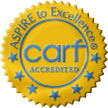View our 2022 Moriah House Fact Sheet
The Moriah House Family Shelter accepts female veterans and families who are experiencing homeless or have resided in substandard living conditions.
These families are challenged with issues of economic hardship, physical and emotional trauma, chemical dependency, mental illness, physical illness, lack of education, or lack of employment. All residents meet Ohio’s guidelines for extremely low or low income levels with over 90% in the extremely low-income category.
Moriah House provides a full range of transitional services that assist residents in moving from homelessness to stable housing and employment through these basic programs:
Interim housing provides a safe place to live, meals, and all other basic necessities.
Housing navigation services enable each resident to work directly with skilled staff to develop an individualized plan for permanent housing, stable income, self-sufficiency, and education/training.
Family Services staff work with the children and their parents to address each child’s unique mental, physical, social, and educational need. Trauma-specific interventions are coordinated with other social service agencies, medical professionals and educators.
For assistance or any additional questions you may call our Shelter directly at 216-631-4141.
Before being placed in an interim housing or housing solutions program at West Side Catholic Center clients are required to contact Cuyahoga County Coordinated Intake.
Address: 1736 Superior Ave 2nd floor of Cosgrove Building (Superior Entrance)
Hours: 8am-8pm, Monday-Friday
Phone: 216-674-6700
24/7 Crisis Hotline: 216-623-6888
Fax: 216-674-1681
http://ohs.cuyahogacounty.us/en-US/information-homeless.aspx
Additional Services and Resources: United Way 2-1-1 Greater Cleveland
Serving 26 counties and covering 3.5 million people in Ohio, the United Way 2-1-1 Help Center provides free and confidential 24-hour access to a compassionate professional who will review your options for help, develop a plan and act as your advocate if you are faced with barriers to service. Simply dial 2-1-1 for assistance or visit http://www.211oh.org/ for additional information about this program.
Services include: Employment and Income Support, Family Support and Parenting, Food, Clothing and Household Items, Health Care, Housing and Utilities, Legal Services and Financial Management, Mental Health and Counseling, Substance Abuse and Addictions
The U.S. Department of Agriculture prohibits discrimination against its customers, employees, and applicants for employment on the bases of race, color, national origin, age, disability, sex, gender identity, religion, reprisal, and where applicable, political beliefs, marital status, familial or parental status, sexual orientation, or all or part of an individual's income is derived from any public assistance program, or protected genetic information in employment or in any program or activity conducted or funded by the Department. (Not all prohibited bases will apply to all programs and/or employment activities.)
If you wish to file a Civil Rights program complaint of discrimination, complete the USDA Program Discrimination Complaint Form, found online at http://www.ascr.usda.gov/complaint_filing_cust.html, or at any USDA office, or call (866) 632-9992 to request the form. You may also write a letter containing all of the information requested in the form. Send your completed complaint form or letter by mail to U.S. Department of Agriculture, Director, Office of Adjudication, 1400 Independence Avenue, S.W., Washington, D.C. 20250-9410, by fax (202) 690-7442 or email at program.intake@usda.gov.
Individuals who are deaf, hard of hearing or have speech disabilities may contact USDA through the Federal Relay Service at (800) 877-8339 or (800 845-6136 (Spanish).
USDA is an equal opportunity provider and employer.












